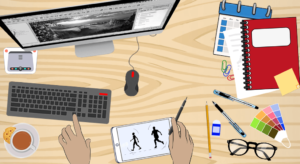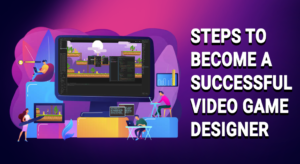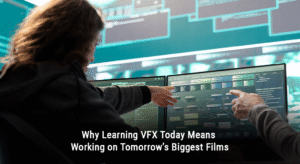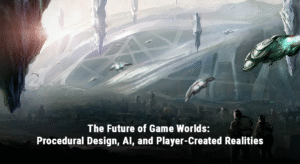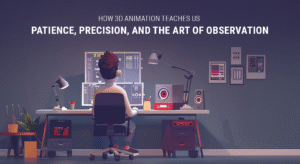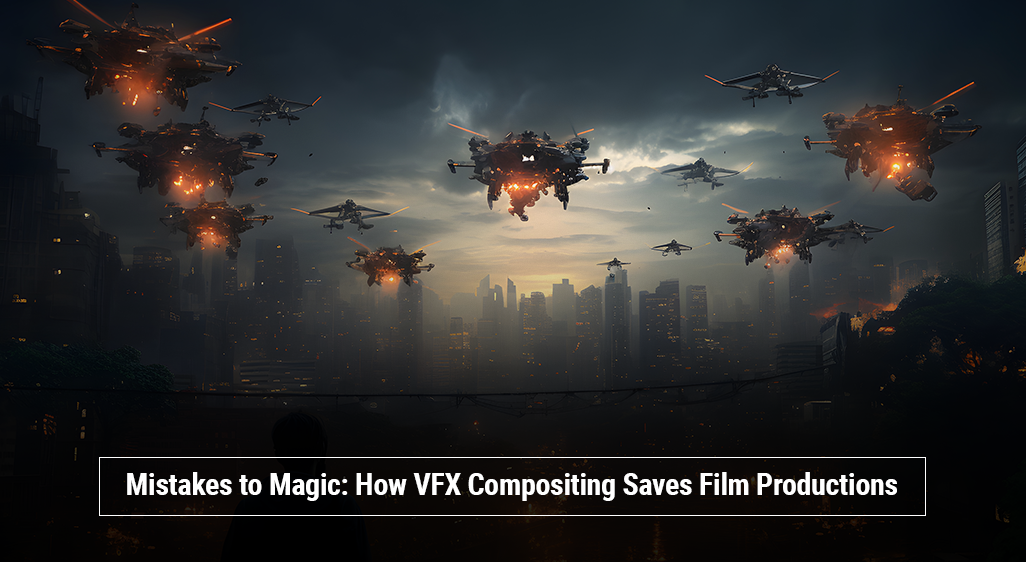
Mistakes to Magic: How VFX Compositing Saves Film Productions
Step into any movie theater and you’ll notice something remarkable. Scenes that seem impossible on set look seamless on the big screen. Actors who stood in front of a green cloth now battle dragons, soar across galaxies, or escape disasters so convincingly that you almost forget they were never real.
The secret isn’t just high-end cameras or talented actors. It lies in a less glamorous but utterly transformative process: VFX compositing.
This is the stage where mistakes disappear, impossible shots come alive, and entire films are saved from what could have been costly disasters. But how exactly does compositing rescue productions, and why is it considered the unsung hero of filmmaking? Let’s dive in.
What Exactly Is VFX Compositing?
Think of compositing as stitching together a quilt, but instead of fabric, you’re combining layers of footage, digital effects, matte paintings, and CGI.
- A green screen background? Compositing replaces it with a believable environment.
- Two actors shot in different cities? Compositing puts them in the same frame.
- A distracting boom mic in the corner of a shot? Compositing erases it like it was never there.
In short, compositing ensures that all the visual pieces , real or digital, sit together naturally. Done right, the audience never questions what they see.
Why Filmmakers Depend on Compositing
Directors dream big, but reality often doesn’t cooperate. Weather ruins outdoor shoots, sets feel incomplete, or special effects rigs fail on the day of filming.
Compositing is the fix. It allows filmmakers to:
- Recover ruined shots without reshoots
- Enhance practical effects with digital polish
- Blend fantasy and reality so smoothly that the illusion feels real
- Save money and time by reducing the need for expensive retakes
For many productions, without compositing, the entire project would collapse.
Mistakes That Turn Into Magic
Here’s where it gets interesting. Compositing doesn’t just make things prettier. It turns mistakes into opportunities for creativity.
1. Continuity Errors
Imagine an actor holding a coffee cup in one scene and suddenly it’s missing in the next. Reshooting means extra cost and scheduling chaos. Compositors can digitally insert, remove, or adjust objects to keep continuity tight.
2. Incomplete Sets
Budget or time often leaves a set unfinished. Maybe a medieval castle has only one tower built. Compositors extend the architecture digitally, building entire landscapes that never existed.
3. Lighting Mishaps
Sometimes, natural light changes between takes. Instead of wasting hours adjusting equipment, compositing evens out the brightness and color grading, making shots look like they belong to the same world.
4. Unwanted Crew in Frame
Boom mic shadows, camera reflections, and even crew members sneaking into the shot. All of these can be digitally erased. The audience never knows.
5. Last-Minute Creative Changes
Directors often change their minds. Want the sky stormier? Need an explosion bigger? Compositors tweak it without forcing everyone back on set.
How Compositing Shapes Storytelling
The power of compositing goes beyond fixing errors. It’s storytelling in disguise.
- Setting the mood: A foggy forest can feel mysterious, romantic, or terrifying, depending on how it’s composited.
- Guiding the audience’s eye: Brightening one area while muting another draws attention to the right detail.
- Creating symbolism: Color grading can suggest themes like warm tones for hope and cold hues for despair.
Every frame is carefully crafted to serve the narrative. Compositors aren’t just technicians; they’re visual storytellers.
Famous Examples of Compositing Magic
- The Avengers Films: Characters shot on different continents appeared side by side, thanks to flawless compositing.
- The Lord of the Rings Trilogy: Miniature sets, real actors, and CGI creatures were layered together to create Middle-earth.
- Gravity (2013): Almost the entire film was composited, blending live actors with digital environments to create outer space.
Without compositing, these blockbusters wouldn’t exist in the form we know.
Why Compositors Are Invaluable to Film Productions
Studios invest millions in VFX because they know compositors are the last safeguard against failure. They:
- Rescue flawed footage that might otherwise be unusable
- Magically blends the real and unreal
- Elevate modestly budgeted films into visually stunning works
- Guarantee that directors can focus on creativity rather than technical setbacks
The result? Movies that look larger than life while staying within budget and deadline.
Skills Every Great Compositor Needs
Behind the magic are professionals who mix creativity with technical mastery. A successful compositor must know:
- Rotoscoping: Isolating parts of an image for replacement or editing
- Green screen keying: Cleanly removing backgrounds
- Tracking and match-moving: Making digital effects move realistically with live footage
- Color correction and grading: Ensuring consistency and mood across shots
- Attention to detail: Spotting errors the audience must never see
These skills are sharpened with practice, training, and industry-level tools.
Where VFX Compositing Meets Editing
Editing shapes the rhythm of a film, while compositing shapes its believability. Together, they’re inseparable. That’s why many professionals now train in VFX compositing and editing, blending both skill sets to become indispensable on production teams.
The Future of Compositing
With the rise of AI and real-time engines like Unreal, compositing is evolving rapidly. Virtual production allows actors to perform in LED-powered environments, but even then, compositors polish, refine, and perfect the visuals.
The demand for skilled compositors is only growing. From films to OTT shows, ads to gaming, the scope is massive.
Why Training Matters
Here’s the truth: learning compositing on your own is tough. It’s not just about software; it’s about understanding storytelling, pipelines, and how to work with directors and editors.
That’s where structured programs come in.
Arena Animation Park Street: Your Gateway to the Industry
If you’re serious about stepping into this world, Arena Animation Park Street’s Advanced Program in VFX Compositing & Editing is designed exactly for you.
Here’s what makes it stand out:
- Hands-on training: Train with industry-standard software such as Nuke, After Effects, and Mocha.
- Mentorship: Led by experts:Learn from professionals who have worked on actual projects.
- Portfolio-ready skills: Create a showreel that makes studios take notice.
- End-to-end learning: From rotoscoping to high-end compositing to editing, the program has it all.
- Career guidance: Counselling to assist you in securing your first industry break.
Arena Animation Park Street has helped countless students turn their passion into careers. With the right training, you don’t just learn to “fix” films. You learn how to create visual magic.
Final Thoughts
Each error on set is an opportunity for compositors to excel. Each misplaced prop, lighting error, or bare backdrop can be turned into a visual wonder. This is why VFX compositing is still the workhorse of contemporary cinema.
For anyone who wants to be a part of this unseen magic, the individuals who turn mistakes into epic occurrences, the beginning is becoming a master of the craft. And there’s no better way to start than with master advice.
Arena Animation Park Street is poised to assist you in making that jump.


